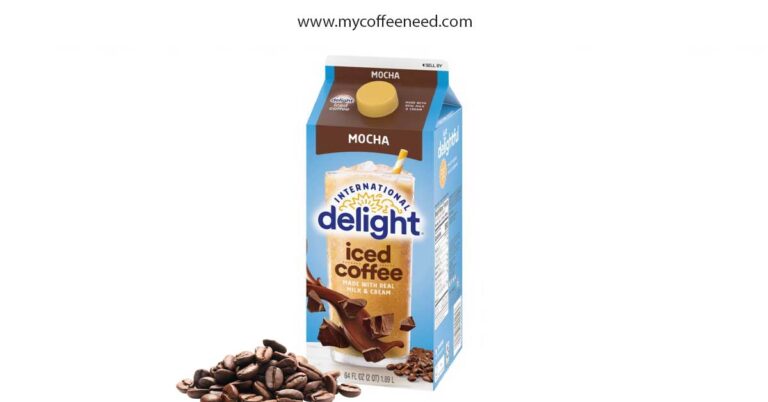Is Decaf Coffee Good For You While Pregnant? 3 Powerful Health Benefits
Is Decaf Coffee Good For You While Pregnant? Decaf coffee during pregnancy is a topic of much debate and concern among expecting mothers. Many wonder whether indulging in a cup of decaf coffee is a safe choice for their health and the well being of their unborn child.
Understanding the potential benefits and risks associated with decaf coffee consumption during pregnancy is crucial for making informed decisions. The facts and considerations surrounding this matter empower pregnant individuals with the knowledge they need to make the best choices for themselves and their babies.
10 Benefits Of Decaf Coffee During Pregnancy
Reduced Caffeine Intake
Decaf coffee allows pregnant individuals to enjoy the taste of coffee with significantly lower caffeine content compared to regular coffee. This reduction in caffeine intake can help minimize potential risks associated with excessive caffeine consumption during pregnancy, such as increased heart rate and difficulty sleeping.
Minimized Risk of Pregnancy Complications
Limiting caffeine intake through decaf coffee may reduce the risk of pregnancy complications, including miscarriage and preterm birth. High levels of caffeine consumption have been linked to adverse pregnancy outcomes, making decaf coffee a safer alternative for expectant mothers.
Improved Hydration
Staying hydrated is essential during pregnancy and decaf coffee can contribute to daily fluid intake without the diuretic effects associated with regular coffee. Hydration supports overall health and helps prevent common pregnancy discomforts like constipation and urinary tract infections.
Antioxidant Benefits
Decaf coffee retains many of the antioxidants found in regular coffee, including chlorogenic acid and polyphenols. These antioxidants help combat oxidative stress in the body, which may contribute to reduced inflammation and improved overall health during pregnancy.
Reduced Heartburn Risk
Pregnant individuals are more susceptible to heartburn due to hormonal changes and increased pressure on the digestive system. Decaf coffee offers the familiar taste of coffee without exacerbating symptoms of heartburn, making it a gentler option for those with digestive sensitivities.
Controlled Blood Sugar Levels
Decaf coffee consumption has been associated with improved insulin sensitivity, which may help regulate blood sugar levels during pregnancy. Stable blood sugar levels are crucial for maternal and fetal health, reducing the risk of gestational diabetes and other complications.
Lowered Anxiety Levels
Pregnancy can be a stressful time and excessive caffeine consumption may exacerbate anxiety symptoms. Decaf coffee provides a comforting beverage option without the stimulating effects of caffeine, helping pregnant individuals manage stress and anxiety more effectively.
Support for Breastfeeding
For individuals planning to breastfeed after delivery, transitioning to decaf coffee during pregnancy can help prepare for reduced caffeine intake postpartum. Breastfeeding mothers may choose to limit caffeine consumption to avoid potential effects on infant sleep patterns and irritability.
Expanded Beverage Options
Decaf coffee opens up a variety of beverage options for pregnant individuals who enjoy the ritual of coffee consumption. From lattes to cappuccinos, decaf coffee can be incorporated into a diverse range of drinks without the concern of excessive caffeine intake.
Enjoyment Without Compromise
Most importantly, decaf coffee allows pregnant individuals to continue enjoying the taste and experience of coffee without compromising their health or the health of their unborn child. It provides a comforting and familiar beverage option throughout pregnancy and beyond.
Decaf coffee offers numerous benefits for pregnant individuals seeking to make mindful choices about their caffeine consumption while prioritizing their well being and the health of their baby.
Risks And Considerations Of Decaf Coffee During Pregnancy
Chemical Residues
Some decaffeination processes involve the use of chemicals such as methylene chloride or ethyl acetate. While these chemicals are generally considered safe in small amounts, pregnant individuals may prefer decaf coffee processed using alternative methods, such as the Swiss Water Process, which uses water to remove caffeine.
Potential Caffeine Content
Despite being labeled as decaffeinated, some decaf coffee products may still contain trace amounts of caffeine. The exact caffeine content can vary depending on factors such as the type of coffee bean and the decaffeination process used.
Pregnant individuals should be aware of this possibility and choose decaf coffee brands that prioritize minimal caffeine content.
Sensitivities and Allergies
Certain individuals may be sensitive or allergic to components found in decaf coffee, such as certain proteins or compounds introduced during the decaffeination process.
Pregnant individuals should monitor for any adverse reactions and consult with healthcare providers if they experience symptoms such as digestive discomfort, skin reactions or respiratory issues.
Additives and Contaminants
Some decaf coffee products may contain additives or contaminants that could pose risks during pregnancy. Pregnant individuals should carefully review ingredient labels and opt for decaf coffee brands that prioritize quality and transparency in sourcing and production practices.
Acidic Nature
Decaf coffee, like regular coffee, can be acidic, which may exacerbate symptoms of acid reflux or heartburn during pregnancy. Pregnant individuals prone to digestive discomfort should consider consuming decaf coffee in moderation and exploring low acid coffee options to minimize potential irritation.
Individual Sensitivities
Pregnancy can heighten sensitivity to certain foods and beverages, including decaf coffee. Some individuals may experience gastrointestinal discomfort or other adverse reactions when consuming decaf coffee, regardless of its caffeine content. Pregnant individuals should listen to their bodies and adjust their consumption accordingly.
Hydration Considerations
While decaf coffee can contribute to daily fluid intake, it should not replace water or other hydrating beverages during pregnancy. Pregnant individuals should prioritize water consumption to maintain optimal hydration levels and support maternal and fetal health.
Consultation with Healthcare Providers
Before incorporating decaf coffee into their pregnancy diet, individuals should consult with their healthcare providers, including obstetricians, midwives or dietitians. Healthcare professionals can provide personalized guidance based on individual health factors, pregnancy concerns and dietary preferences.
While decaf coffee can be a satisfying beverage option for pregnant individuals seeking to limit caffeine intake, it’s essential to be mindful of potential risks and considerations.
By staying informed, reading labels and consulting with healthcare providers, pregnant individuals can make informed choices that promote their wellbeing and the health of their unborn child.
Choosing The Safest Coffee During Pregnancy
During pregnancy, many women wonder about the safety of consuming coffee and seek alternatives that pose minimal risks to their health and the well being of their unborn child. While moderation is key, several factors can help determine the safest coffee options for pregnant individuals.
Decaf Coffee
Decaf coffee is often considered a safer option for pregnant women due to its reduced caffeine content. While not entirely caffeine free, decaf coffee typically contains significantly less caffeine than regular coffee, minimizing the risk of caffeine related complications during pregnancy.
Low Acid Coffee
Pregnant individuals prone to acid reflux or digestive discomfort may benefit from choosing low acid coffee options. Low acid coffee varieties undergo special processing methods or feature specific bean blends designed to reduce acidity, making them gentler on the stomach and digestive system.
Organic and Single Origin Coffees
Opting for organic and single origin coffees can help minimize exposure to pesticides, herbicides and other potentially harmful chemicals commonly used in conventional coffee cultivation.
Organic certification ensures that coffee beans are grown and processed using environmentally friendly practices, reducing the risk of pesticide residues in the final product.
Cold Brew Coffee
Cold brew coffee offers a smoother and less acidic alternative to traditional hot brewed coffee. Its longer brewing process results in lower acidity levels and a milder flavor profile, making it a suitable option for pregnant individuals seeking a refreshing coffee experience without the acidity often associated with hot coffee.
Herbal Coffee Alternatives
For those looking to avoid caffeine entirely, herbal coffee alternatives made from ingredients like roasted barley, chicory or dandelion root provide a caffeine free option with a similar taste profile to coffee. These herbal blends offer a comforting beverage choice for pregnant individuals while avoiding the stimulant effects of caffeine.
Conclusion
In conclusion, the question of whether decaf coffee is good during pregnancy is nuanced. Decaf coffee offers a valuable alternative for those aiming to manage caffeine intake, with potential benefits such as reduced risks of complications and improved hydration. However, the decision should be approached with awareness, considering factors like processing methods, potential additives and individual sensitivities.
To ensure the best choices for both the mother and the baby, consulting with healthcare providers remains crucial. Ultimately, finding a balance that aligns with individual health goals is key in the journey of embracing a healthy pregnancy with the occasional indulgence in decaf coffee.







